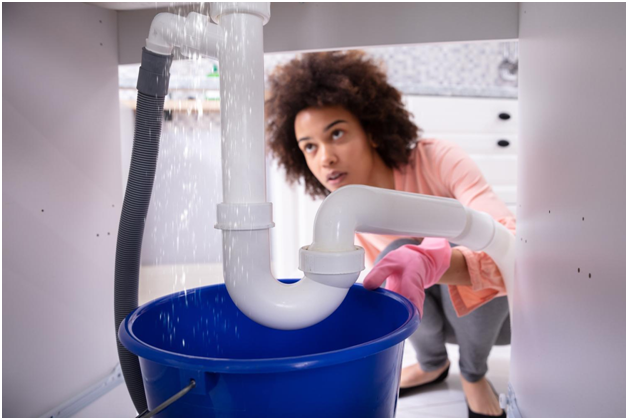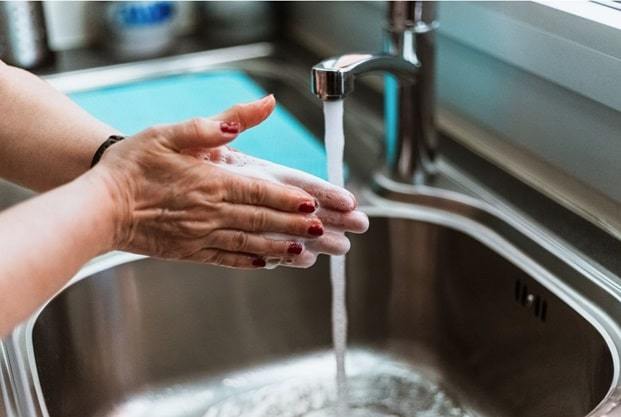Almost everyone may have their personal opinion when it comes to What to Do While Waiting for an Emergency Plumber.

Plumbing emergency situations can strike at any moment, triggering tension and potential damage to your home. Whether it's a ruptured pipeline, a blocked drain, or a leaky tap, understanding how to take care of the scenario up until an expert plumber gets here can conserve you from additional problems. This article gives necessary emergency plumbing pointers to assist you mitigate damages and gain back control during a pipes dilemma.
Shut off the Water Supply
The very first step in any type of plumbing emergency situation is to turn off the water supply. For local issues, such as a dripping faucet or toilet, switch off the valve near the component. In the case of a major leakage or burst pipeline, locate your home's major water shut-off valve and transform it off promptly. Knowing the area of these valves ahead of time can save beneficial time during an emergency situation.
Shut Off Your Water Heater
In particular emergencies, such as a ruptured pipe, it's important to shut off your hot water heater. This avoids getting too hot or damage to the device when water stops streaming. Turn off the power supply to the water heater (electric or gas) and allow it cool down to stay clear of potential dangers.
Temporarily Stop a Ruptured Pipe
A ruptured pipe can bring about significant water damages in minutes. To reduce the concern:
Call a professional plumbing promptly to address the issue completely.
Have an Emergency Situation Plumbing Kit
Prepare a fundamental pipes emergency situation kit to manage small concerns effectively. Your set must consist of:
Having these tools available can make a considerable distinction in your capacity to take care of emergencies.
Unclog Drains Safely.
A blocked drainpipe can be a discouraging and unpleasant concern. Below's how to tackle it:.
If these approaches do not function, avoid using excessive force, as it may intensify the obstruction.
Handle Overflowing Toilets.
An overruning commode can create prompt disorder. Here's what you should do:.
Address Little Leaks with Short-lived Repairs.
Small leakages can swiftly become substantial issues if left unattended. Use these momentary repairs until expert help gets here:.
While these fixes aren't long-term, they can help reduce water loss and damages.
Handle Frozen Pipeline Meticulously.
In colder environments, icy pipes are a typical emergency situation. If you suspect a frozen pipeline:.
Know When to Call a Professional.
While quick fixes can assist briefly, certain plumbing problems call for prompt professional attention. Call a plumbing if:.
Promptly contacting a professional guarantees the problem is fixed properly and stops additional issues.
Stop Additional Damages.
Taking fast action to reduce damage can save you time and money in the long run. Here's how:.
Final thought.
Plumbing emergencies can be frustrating, yet with the ideal understanding and tools, you can take care of the scenario successfully up until help gets here. By switching off the supply of water, resolving little leaks, and using short-lived repairs, you can reduce damage and maintain your home safe. Keep in mind, these tips are short-lived options; always consult a qualified plumbing technician to handle the origin of the issue. Preparation and fast thinking are your ideal allies in any type of plumbing emergency situation.
8 Helpful Tips for Managing Plumbing Emergencies at Home
If your plumbing system hasn’t failed once, wait for it because almost everyone has a story to tell. Sometimes, it could be simple emergencies such as a leaking pipe, a blocked cistern, or even a big burst pipe. In situations like this, you need to have some handy tips to save you some money and from possible damages.
Take care of minor issues early.
Sometimes, you could have avoided an emergency by taking proactive measures while it was still early. Some major plumbing emergencies can be a result of an ignored minor issue. We recommend that you have items like plumbing tapes and other related items. A plumbing tape can allow you to manage minor leaks before the plumber arrives.
Cut off the water supply.
This tip is essential in almost any type of leakage problem. For problems like minor leakages in the toilet or kitchen, turn off the supply that takes water to the affected pipes. If the leakage is a major pipe, you must shut off the supply valve to the entire building. This will help you avoid flooding your home and neighbors if you share a flat.
Know your plumbing system
Folks typically move into a new apartment without understanding the water supply around the building. This can prove disastrous if a water emergency arises and the plumber is far away. The previous tip will prove useless if you don’t practice this one. More importantly, know where your water shut-off valve is located – you’ll need that knowledge to prevent potential home floods.
Have some common handy tools
There are lots of plumbing emergencies that you can handle without hiring a plumber. That’s why you must keep some tools available always. Some tools that you can use to fix simple plumbing emergencies easily include plumbing tapes, screwdrivers, thread seal tapes, plungers, pliers, tape measures, and rubber gloves.
Insulate your pipes from cold
You’ll save yourself from many plumbing expenses if you protect your water pipes from the cold. This is because of the harmful effects that cold weather can have on your pipes. During winter, your pipes can burst from being overly expected to freezing temperatures. So, make sure insulators are there to keep the pipes working correctly.
Avoid practices that will clog your toilet.
Many people indulge in practices that can damage the plumbing system of the entire building. One of these is when they use their toilet to dispose-off garbage. They flush all kinds of things, such as paper towels, bandages, hairs, female sanitary products, etc., down the toilet. This will block your toilet in the long run, incurring unnecessary expenditures. Dump such waste in the trash instead.
Check your dials regularly.
Sometimes, there could be leakages in your home without noticing them in time. So, constantly monitor your water meter dial. If the dial is reading when there is nobody using water, this is an indicator that there is leaking. Check for leaks immediately. Call a plumber as soon as possible if you can’t find any.
https://www.constructionplacements.com/8-helpful-tips-for-managing-plumbing-emergencies-at-home/

I hope you liked our excerpt on Expert Tips for Emergency Plumbing Repairs. Thank you for taking a few minutes to read our short article. Sharing is nice. Helping people is fun. I cherish reading our article about Plumbing Emergencies: Tips on What To Do Before.
Call